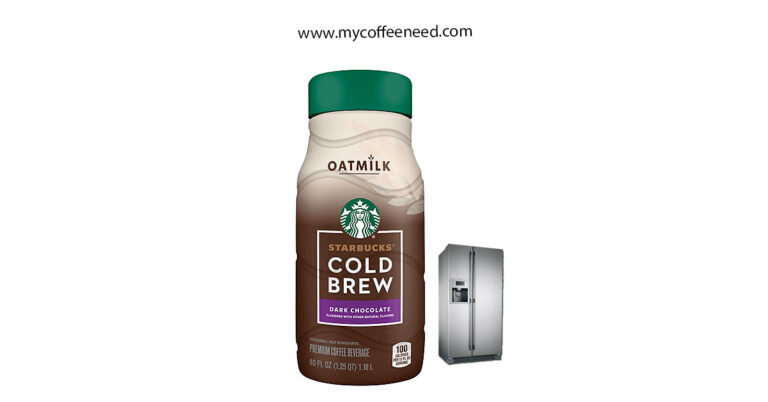Can Cold Brew Give You Diarrhea?
Cold brew coffee has become increasingly popular in recent years due to its smooth taste and convenience. However, it is important to understand the potential health risks associated with drinking cold brew coffee, such as the possibility of developing diarrhea. This article will explore the potential causes of cold brew-induced diarrhea and provide advice on how to reduce the risk of developing this condition. By understanding the potential risks associated with cold brew coffee, you can make an informed decision about whether or not to include it in your diet.
The Role of Caffeine in Cold Brew-Induced Diarrhea
Caffeine is a common ingredient in cold brew coffee, and it can have a significant impact on the digestive system. Consuming cold brew coffee on an empty stomach can cause diarrhea, as the caffeine can act as a laxative. People with irritable bowel syndrome or other digestive issues should be especially careful when consuming cold brew coffee, as it can cause stomach upset. Additionally, those with lactose intolerance should be aware that cold brew coffee can contain dairy products.
Caffeine is present in both regular coffee and iced coffee, but cold brew coffee typically contains much more caffeine than either of these. This can lead to a range of negative effects, including upset stomach, abdominal pain, and loose stools. Additionally, the acidity of cold brew coffee can cause acid reflux and other digestive issues. It is important to note that the amount of caffeine in a cup of cold brew coffee can vary significantly depending on the type of coffee used and the brewing method.
For those who want to reduce the amount of caffeine in their cold brew coffee, decaf coffee or herbal teas are good alternatives. Additionally, it is important to note that cold water can also increase the caffeine content of cold brew coffee, as the chlorogenic acid in the coffee is more soluble in cold water.
In conclusion, the role of caffeine in cold brew-induced diarrhea is significant. While coffee drinkers may enjoy the taste of cold brew coffee, they should be aware of the potential health risks associated with it. It is a good idea to limit caffeine intake and to drink plenty of water to reduce the risk of digestive issues. Further research is needed to determine the best ways to reduce the amount of caffeine in cold brew coffee and to understand the full range of potential health benefits and risks associated with its consumption.
Investigating the Potential Causes of Cold Brew-Related Diarrhea
Investigating the Potential Causes of Cold Brew-Related Diarrhea is an important topic of discussion, as cold brew coffee has become increasingly popular in recent years. Diarrhea is a common symptom of gastrointestinal distress, and it can be caused by a variety of factors. In order to better understand the potential causes of cold brew-related diarrhea, it is important to look at the digestive system, bowel movements, and the effects of cold brew coffee on the body.
The digestive system is composed of the stomach, small intestine, large intestine, and rectum. When food is ingested, it is broken down in the stomach and then passes through the small intestine, where it is further broken down and nutrients are absorbed. The large intestine absorbs water and electrolytes from the food, and then the waste is passed through the rectum. When the digestive system is not functioning properly, it can lead to digestive issues such as diarrhea.
Cold brew coffee is made by steeping coffee grounds in cold water for an extended period of time. This process results in a lower acidity level than regular coffee, which can be beneficial for those with sensitive stomachs. However, cold brew coffee can also have a laxative effect, which can lead to diarrhea. Additionally, cold brew coffee may contain much more caffeine than regular coffee, which can also lead to digestive issues.
It is also important to consider other potential causes of cold brew-related diarrhea. Artificial sweeteners, dairy products, and energy drinks can all contribute to digestive issues. Additionally, some people may be lactose intolerant, which can cause abdominal pain and loose stools. Finally, it is possible that drinking too much coffee can lead to stomach upset, as the production of stomach acid can be increased with large quantities of caffeine.
In conclusion, there is no definitive answer as to why cold brew-related diarrhea occurs. It is important to consider the digestive system, bowel movements, and the effects of cold brew coffee on the body. Additionally, other potential causes such as artificial sweeteners, dairy products, and energy drinks should be taken into account. If you are experiencing digestive issues after drinking cold brew coffee, it is best to consult a medical professional for advice.
Assessing the Risk of Cold Brew Consumption and Diarrhea
When it comes to assessing the risk of cold brew consumption and diarrhea, it is important to understand the digestive system and how it can be affected by the consumption of cold brew coffee. Cold brew coffee is a type of coffee that is brewed with cold water, as opposed to hot water. It is believed to have a laxative effect on the body, which can lead to diarrhea.
In addition, it is important to consider other factors that can contribute to digestive issues, such as drinking coffee on an empty stomach, consuming too much caffeine, artificial sweeteners, dairy products, and acidic drinks. It is also important to note that regular coffee, iced coffee, and decaf coffee can all have negative effects on the digestive system.
When it comes to cold brew coffee, it is important to consider the amount of caffeine and acidity in the coffee. Cold brew coffee has much less caffeine than regular coffee, and it also has a lower acidity level. This can be beneficial for those with sensitive stomachs, as it is less likely to cause stomach upset. However, it is important to note that cold brew coffee can still cause digestive issues if consumed in large quantities.
It is also important to consider the other health benefits and risks associated with cold brew coffee. Cold brew coffee has a higher concentration of chlorogenic acid, which is believed to have health benefits. However, it is important to note that there is still further research needed to determine the definitive answer.
Finally, it is important to consider the best ways to consume cold brew coffee. It is generally a good idea to drink cold brew coffee in moderation, as it can still cause digestive issues if consumed in large quantities. Additionally, it is important to drink plenty of water and avoid drinking cold brew coffee on an empty stomach.
In conclusion, assessing the risk of cold brew consumption and diarrhea is an important step for coffee drinkers. It is important to consider the amount of caffeine and acidity in the coffee, as well as other factors that can contribute to digestive issues. Additionally, it is important to drink cold brew coffee in moderation and avoid drinking it on an empty stomach.
Understanding the Physiological Effects of Cold Brew on the Digestive System
Understanding the physiological effects of cold brew on the digestive system is important for coffee drinkers. Cold brew coffee has become increasingly popular in recent years, with many coffee shops offering it as an alternative to regular coffee and iced coffee. While it may seem like a good idea to switch to cold brew, it is important to understand how it affects the digestive system.
Cold brew coffee contains much less caffeine than regular coffee, but it still contains enough to cause some digestive issues. In addition, cold brew coffee has a much lower acidity level than regular coffee, which can help reduce the production of stomach acid and reduce the risk of acid reflux. However, it is important to note that cold brew coffee can still cause stomach upset in some people, especially those with sensitive stomachs or those who are lactose intolerant.
The caffeine in cold brew coffee can also have a laxative effect, which can cause loose stools and abdominal pain. Additionally, the chlorogenic acid in cold brew coffee can cause muscle contractions in the gastrointestinal tract, leading to stomach cramps and discomfort. For those with irritable bowel syndrome, cold brew coffee can exacerbate symptoms.
It is also important to note that cold brew coffee can still have negative effects on the digestive system, even if it is consumed on an empty stomach. Cold water can cause the production of gastric acid, which can lead to stomach upset and discomfort. Additionally, drinking too much cold brew coffee can lead to dehydration, which can cause further digestive issues.
In conclusion, it is important to understand the physiological effects of cold brew on the digestive system. While cold brew coffee can have some health benefits, it is important to be aware of the potential side effects and health risks associated with it. It is also important to note that the amount of coffee consumed can have an effect on the digestive system, so it is best to limit coffee intake to one or two cups per day. Additionally, it is a good idea to drink plenty of water throughout the day to stay hydrated and to avoid acidic drinks such as energy drinks and dark roast coffee. Finally, it is important to consult a doctor if you experience any digestive issues or if you are concerned about the amount of caffeine you are consuming.
Exploring the Impact of Cold Brew on Intestinal Microbiota
The digestive system is an incredibly complex and important part of the human body, and the impact of what we consume on our intestinal microbiota can be significant. Cold brew coffee has become increasingly popular in recent years, and many people wonder if this type of coffee can affect their bowel movements, irritable bowel syndrome, and other digestive issues.
Cold brew coffee is made by steeping ground coffee beans in cold water for an extended period of time, usually between 12 and 24 hours. This process produces a cup of coffee that is less acidic than regular coffee or iced coffee, and it also contains less caffeine. Cold brew coffee does not contain any artificial sweeteners, and it is generally considered to be a low-acid beverage.
The acidity level of cold brew coffee is much lower than regular coffee or iced coffee, and this can be beneficial for those who suffer from digestive issues such as acid reflux, lactose intolerance, and stomach upset. Cold brew coffee also contains fewer caffeine molecules than regular coffee, so it can be a good choice for those who are sensitive to the effects of caffeine.
In addition to its lower acidity level, cold brew coffee also has a unique effect on the digestive tract. The cold water used to make cold brew coffee triggers a process called the gastrocolic reflex, which is a muscle contraction in the large intestine that helps to move food through the digestive system. This process can help to reduce abdominal pain, bloating, and other digestive issues.
Despite the potential health benefits of cold brew coffee, it is important to remember that it still contains caffeine. Drinking too much coffee can lead to health risks such as increased heart rate, insomnia, and anxiety. It is also important to remember that cold brew coffee is not a substitute for regular coffee, and it is not recommended to drink large quantities of cold brew coffee on an empty stomach.
In conclusion, cold brew coffee can be a good choice for those who suffer from digestive issues, as it has a lower acidity level and fewer caffeine molecules than regular coffee. However, it is important to remember that drinking too much coffee can lead to health risks, and it is best to consume cold brew coffee in moderation. Additionally, it is always a good idea to speak to a doctor or healthcare professional before making any changes to your diet or lifestyle.
Examining the Link Between Cold Brew and Diarrhea Symptoms
When it comes to coffee, cold brew has become increasingly popular over the past few years. However, there is a growing concern that drinking cold brew coffee may be linked to an increased risk of developing diarrhea symptoms. To understand this link, it is important to consider the effects of cold brew on the digestive system.
The digestive system is responsible for breaking down food and extracting nutrients from it. When cold brew coffee is consumed, it can cause the muscles in the stomach and intestines to contract, which can lead to loose stools and diarrhea. Additionally, cold brew coffee is usually consumed on an empty stomach, which can further exacerbate the laxative effect.
Furthermore, cold brew coffee typically contains much more caffeine than regular coffee or iced coffee. Caffeine is known to stimulate the production of stomach acid, which can lead to digestive issues such as upset stomach, acid reflux, and abdominal pain. In addition, cold brew coffee often contains artificial sweeteners, which can cause digestive issues in those who are lactose intolerant.
Finally, cold brew coffee is typically made with cold water, which can cause the release of chlorogenic acid. This acid can cause muscle contractions in the stomach and intestines, leading to diarrhea symptoms.
Overall, there is a potential link between cold brew coffee and diarrhea symptoms. However, it is important to note that not all coffee drinkers will experience negative effects from drinking cold brew. In fact, some may even benefit from the lower acidity level and lower caffeine content of cold brew. It is also important to note that drinking cold brew in moderation is a good idea, as drinking too much coffee can lead to health risks. Additionally, it is best to avoid drinking cold brew on an empty stomach and to stay hydrated by drinking plenty of water. Finally, those with sensitive stomachs may want to consider drinking decaf coffee or herbal teas instead of cold brew.
Investigating the Potential Health Benefits
Cold brew coffee has become increasingly popular in recent years, and many coffee drinkers are curious about the potential health benefits of this type of coffee. Cold brew coffee is made by steeping ground coffee beans in cold water for an extended period of time, and the resulting beverage is usually less acidic than regular coffee or iced coffee. Cold brew coffee also contains much less caffeine than regular coffee, making it a good choice for those who are sensitive to the effects of caffeine.
Studies have shown that cold brew coffee may have a number of potential health benefits. For example, it may help to reduce the production of stomach acid, which can be beneficial for those with acid reflux or other digestive issues. Cold brew coffee may also have a laxative effect, which can help to improve bowel movements and reduce abdominal pain. Additionally, cold brew coffee may be easier to digest than regular coffee, making it a good choice for those with lactose intolerance or other digestive issues.
It is important to note, however, that cold brew coffee is not necessarily a cure-all for digestive issues. While it may be beneficial for some people, it is not recommended for those with irritable bowel syndrome or other chronic digestive conditions. Additionally, it is important to be mindful of the amount of coffee consumed, as drinking too much can lead to health risks such as increased heart rate and upset stomach.
In conclusion, cold brew coffee may have some potential health benefits, but further research is needed to determine the best ways to enjoy it safely. It is important to remember that everyone’s body is different, and what works for one person may not work for another. As always, it is best to consult with a medical professional before making any changes to your diet or caffeine intake.
Analyzing the Nutritional Profile
Analyzing the Nutritional Profile of Cold Brew Coffee is an important topic for coffee drinkers. Cold brew coffee is made by steeping coffee grounds in cold water for an extended period of time, resulting in a less acidic and smoother cup of coffee. This type of coffee has become increasingly popular due to its lower acidity level and its ability to provide a more intense flavor.
The effects of cold brew coffee on the digestive system are complex. While some people may experience a laxative effect, others may experience abdominal pain or irritable bowel syndrome. Additionally, those with lactose intolerance may find that cold brew coffee is easier to digest than regular coffee. It is important to note that cold brew coffee still contains much caffeine, and it is still possible to experience the negative effects of too much caffeine, such as upset stomach, acid reflux, and muscle contractions.
When consumed on an empty stomach, cold brew coffee can cause an increase in the production of stomach acid, leading to stomach discomfort. Additionally, those who consume large quantities of cold brew coffee may experience loose stools or stomach cramps. It is important to note that cold brew coffee still contains much caffeine, and it is still possible to experience the negative effects of too much caffeine, such as upset stomach, acid reflux, and muscle contractions.
In order to minimize the negative effects of cold brew coffee, it is best to limit your consumption to one cup per day and to avoid drinking it on an empty stomach. Additionally, it is a good idea to opt for decaf coffee or herbal teas instead of cold brew coffee, as these beverages contain much less caffeine. Furthermore, it is important to stay hydrated by drinking plenty of water, as this can help reduce the effects of caffeine consumption.
In conclusion, while cold brew coffee can be enjoyed in moderation, it is important to be aware of the potential health risks associated with its consumption. Those with digestive issues or health conditions should speak to their doctor before consuming cold brew coffee. Additionally, it is important to be mindful of the amount of caffeine and acid in each cup of coffee, as this can affect the digestive system.
Understanding the Role of Bacteria in Cold Brew-Induced Diarrhea
Understanding the role of bacteria in cold brew-induced diarrhea is an important part of understanding the digestive system and the effects of coffee on the body. Cold brew coffee has become increasingly popular in recent years, but it has been linked to an increased risk of diarrhea. This is because cold brew coffee is typically consumed on an empty stomach, which can lead to a laxative effect. Additionally, cold brew coffee often contains much more caffeine than regular coffee or iced coffee, and it may also contain artificial sweeteners, which can irritate the digestive tract.
In comparison, hot coffee is typically better tolerated by the digestive system, as it does not have the same laxative effect. Additionally, it is important to note that those with lactose intolerance may be more likely to experience digestive issues when consuming cold brew coffee. This is because cold brew coffee is made with cold water, which can reduce the amount of chlorogenic acid present in the coffee. This acid helps to break down lactose, so its absence can cause digestive issues.
It is also important to note that consuming too much caffeine can lead to stomach upset, abdominal pain, and loose stools. This is because caffeine can increase the production of stomach acid and stimulate the gastrocolic reflex, which can lead to muscle contractions in the stomach and intestines. Therefore, it is important to be mindful of the amount of coffee consumed, as too much can lead to digestive issues.
In conclusion, it is important to understand the role of bacteria in cold brew-induced diarrhea. Cold brew coffee can cause digestive issues due to its laxative effect, its high caffeine content, and its potential to irritate the digestive tract. Therefore, it is important to be mindful of the amount of coffee consumed, as too much can lead to digestive issues. Additionally, those with lactose intolerance should be especially mindful of the amount of cold brew coffee consumed, as it can cause digestive issues due to its reduced amount of chlorogenic acid.
Evaluating the Potential Side Effects of Cold Brew Consumption
Cold brew coffee has become increasingly popular in recent years, and with its growing popularity, it is important to evaluate the potential side effects of consuming it. Cold brew coffee is made by steeping coffee grounds in cold water for an extended period of time, and it is known to have a lower acidity level than regular coffee, iced coffee, and hot coffee. However, it is important to note that cold brew coffee still contains much caffeine and other compounds, such as chlorogenic acid, that can have negative effects on the digestive system.
Those with digestive issues, such as irritable bowel syndrome, may want to be cautious when consuming cold brew coffee. Drinking cold brew coffee on an empty stomach can have a laxative effect, and it can also cause stomach discomfort, upset stomach, and abdominal pain. Additionally, those with lactose intolerance should be aware that cold brew coffee can contain dairy products, which can cause further digestive issues.
It is also important to consider the amount of coffee consumed. Drinking too much coffee, regardless of the type, can cause stomach issues, such as acid reflux, muscle contractions, and loose stools. Coffee drinkers should be aware of the amount of caffeine they are consuming, as too much caffeine can lead to increased heart rate, restlessness, and insomnia.
In addition to considering the amount of coffee consumed, it is also a good idea to consider the type of coffee. Dark roast coffee has a higher acidity level than medium roast and light roast, and cold brew coffee has a lower acidity level than hot coffee. Those with sensitive stomachs may want to opt for low-acid coffee, such as decaf coffee, herbal teas, or cold water.
Overall, there is no definitive answer as to whether cold brew coffee is safe for consumption, as it can vary depending on the individual. It is important to speak with a medical professional if experiencing any health issues, and to further research the potential side effects of cold brew consumption.
Examining the Impact of Cold Brew on Gut Health
The digestive system is a complex and delicate system, and what we consume can have a profound effect on our overall health. Cold brew coffee is a popular beverage, but what is the impact of cold brew on gut health?
When consumed on an empty stomach, cold brew coffee can have a laxative effect. This is especially true for those with irritable bowel syndrome or other digestive issues. Regular coffee, iced coffee, and even decaf coffee can have a similar effect, but cold brew coffee is known to have much less caffeine than regular hot coffee. This means that those who are sensitive to caffeine can still enjoy a cup of cold brew without the same negative effects.
Cold brew coffee is also much lower in acidity than regular hot coffee. This is due to the fact that the cold water used to make cold brew coffee extracts less of the chlorogenic acid found in coffee grounds. This lower acidity level can help reduce symptoms of acid reflux and other digestive issues.
It is important to note that cold brew coffee does not contain any dairy products, so those with lactose intolerance can enjoy a cup of cold brew without any stomach upset. However, it is important to remember that cold brew coffee still contains caffeine, so it is important to limit the amount of coffee consumed in a day.
Overall, cold brew coffee can be a great alternative to regular hot coffee for those who suffer from digestive issues. It is much lower in acidity and caffeine than regular hot coffee, and it can be enjoyed without any dairy products. However, it is important to remember that too much caffeine can still have negative effects on the digestive system, so it is best to limit the amount of coffee consumed in a day. Additionally, it is always a good idea to drink plenty of water to help support the digestive tract.
Exploring the Potential Benefits of Cold Brew for Diarrhea Sufferers
Cold brew coffee has been gaining popularity in recent years, and with good reason. This type of coffee is made by steeping coffee grounds in cold water for an extended period of time, usually 12-24 hours. The result is a smoother, less acidic cup of coffee that has been shown to offer a number of potential health benefits. For those suffering from chronic diarrhea, cold brew coffee may be a good option.
The digestive system is a complex system that relies on a number of processes to ensure that bowel movements are regular and healthy. Coffee, in particular, can have a laxative effect on the body, as it stimulates the gastrocolic reflex, which is the production of stomach acid and muscle contractions in the gastrointestinal tract. Regular coffee, however, can be too acidic for those with digestive issues, and can even cause upset stomach, acid reflux, and abdominal pain.
Cold brew coffee, on the other hand, is much less acidic than regular coffee, and therefore may be a better option for those with digestive issues. This is because the cold water used to make cold brew coffee does not extract as much of the acidity from the coffee grounds as hot water does. As a result, cold brew coffee has a lower acidity level than regular coffee, which can help to reduce stomach discomfort. Additionally, cold brew coffee has much less caffeine than regular coffee, which can help to reduce the negative effects of caffeine on the digestive system.
For those with chronic diarrhea, cold brew coffee may be a good option. It is important to note, however, that cold brew coffee still contains caffeine, and should be consumed in moderation. Additionally, those with lactose intolerance should avoid cold brew coffee as it may contain dairy products. It is also important to stay hydrated and to drink plenty of water throughout the day.
In conclusion, cold brew coffee may be a good option for those suffering from chronic diarrhea. It is much less acidic than regular coffee, and has much less caffeine, which can help to reduce the negative effects of caffeine on the digestive system. However, it is important to remember to drink in moderation and to stay hydrated throughout the day. Additionally, those with lactose intolerance should avoid cold brew coffee. Ultimately, it is best to consult with a medical professional for advice on the best ways to manage digestive issues.
In conclusion, cold brew coffee is generally safe to consume, but it can cause digestive issues such as diarrhea in some individuals. It is important to pay attention to your body’s reaction to cold brew coffee and to adjust your consumption accordingly. If you experience any digestive issues after drinking cold brew coffee, it is best to speak to your doctor or healthcare provider to determine the cause and to find the best course of action.







